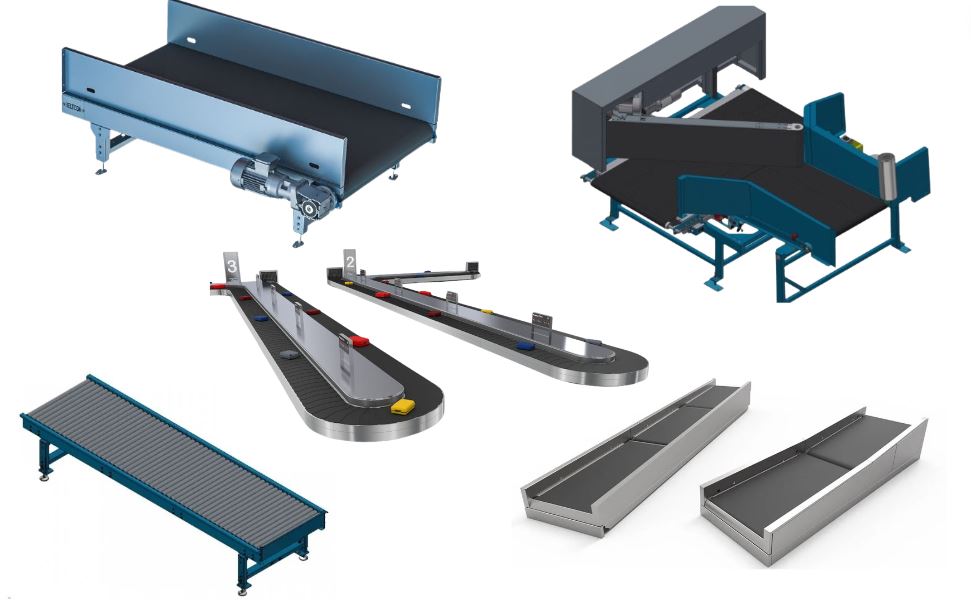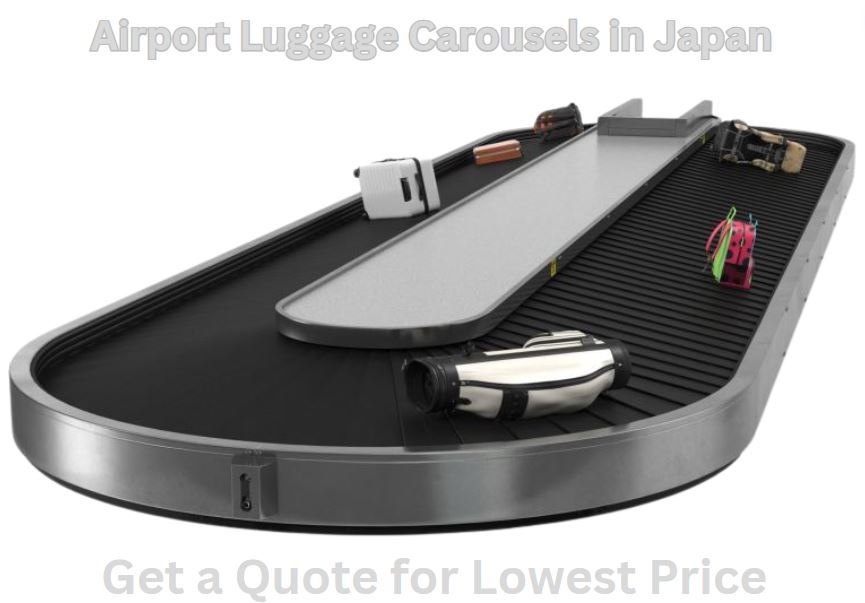Airport Baggage Handling Systems (BHS) in Japan
Are you planning a trip to Japan, the land of the rising sun? As you gear up for your adventure, have you ever stopped to wonder about the intricate processes behind the scenes at airports? One of the unsung heroes of modern air travel is the Baggage Handling System (BHS). In this article, we’ll delve into the world of BHS in Japan, exploring everything from cutting-edge technology to the companies driving innovation in this field.

Airport Baggage Conveyor Systems
Imagine stepping into an airport terminal bustling with activity. Amidst the flurry of travelers, luggage seamlessly glides along conveyor belts, making its way to the aircraft. This seamless operation is made possible by airport baggage conveyor systems, the silent workhorses of aviation hubs across Japan.
BHS Sorting Systems
Efficiency is the name of the game when it comes to BHS sorting systems in Japan. These advanced systems utilize state-of-the-art technology to categorize luggage based on destination, ensuring swift and accurate delivery to aircraft holds. With Tokyo, Osaka, and Nagoya boasting some of the busiest airports in the world, the demand for precision sorting has never been higher.
Automated Baggage Handling Equipment
Japanese ingenuity shines through in the realm of automated baggage handling equipment. From robotic arms to conveyor belts equipped with RFID technology, these innovations streamline the luggage handling process, minimizing human intervention and maximizing efficiency.
Baggage Claim Systems in Japan
After a long flight, there’s nothing quite like the relief of reclaiming your luggage at the baggage claim area. In Japan, advanced baggage claim systems ensure that this process is as seamless as possible, allowing weary travelers to reunite with their belongings swiftly.
Where Technology Meets Travel
Airport terminal BHS in Japan are veritable marvels of engineering. Designed to handle the influx of passengers and luggage, these systems are the beating heart of modern airports. From cargo handling to passenger baggage, they ensure that everything reaches its destination without a hitch.
Powering the Aviation Industry
Behind every successful BHS implementation are reliable ground handling equipment suppliers. These companies provide the nuts and bolts that keep the system running smoothly, from conveyor belts to baggage carts. With their expertise, they play a crucial role in keeping air travel operations efficient and reliable.
Innovation and Beyond
As technology continues to evolve, so too does the landscape of baggage handling systems in Japan. From high-speed sorting to 3D baggage tracking, the future promises even greater efficiency and reliability in luggage handling.
AI-Powered Baggage Handling in Japan
In an era dominated by data, AI-powered baggage handling systems are leading the charge towards greater efficiency and accuracy. By analyzing vast amounts of information in real-time, these systems can anticipate bottlenecks and optimize luggage flow, ensuring a seamless travel experience for passengers.
Building Resilience into Aviation Infrastructure
Japan is no stranger to seismic activity, making earthquake-resistant BHS a top priority for airport operators. By incorporating innovative engineering techniques and materials, these systems are designed to withstand even the most powerful tremors, ensuring uninterrupted operation during times of crisis.
Japanese BHS Manufacturers at the Forefront
At the heart of Japan’s BHS industry are the manufacturers driving innovation in this critical field. From established giants to up-and-coming startups, these companies are pushing the boundaries of what’s possible in luggage handling technology.
Tokyo, Osaka, and Nagoya BHS Manufacturers
Tokyo, Osaka, and Nagoya are home to some of the most renowned BHS manufacturers in Japan. With decades of experience and a track record of excellence, these companies are trusted by airports around the world to deliver cutting-edge solutions that keep the wheels of aviation turning.
Upgrading BHS for the 2020 Olympics
The 2020 Olympics may be in the rearview mirror, but the legacy of innovation lives on in Japan’s BHS industry. The upgrades and enhancements made to accommodate the influx of visitors have paved the way for a new era of efficiency and reliability in luggage handling.

The Intersection of Technology and Travel
At the end of the day, the ultimate goal of BHS in Japan is to enhance the passenger experience. By streamlining the luggage handling process and minimizing delays, these systems ensure that travelers can focus on what truly matters: enjoying their journey.
Cost-Effective Solutions
In an industry where every penny counts, cost-effective BHS solutions are worth their weight in gold. Japanese manufacturers have risen to the challenge, developing innovative yet affordable systems that deliver maximum value without compromising on quality.
Passenger-Centric Design
From intuitive interfaces to ergonomic conveyor belts, passenger-centric design is a hallmark of BHS in Japan. By prioritizing the needs and comfort of travelers, these systems ensure a stress-free journey from check-in to baggage claim.
Conclusion of BHS
BHS plays a vital role in shaping the modern travel experience in Japan. From the bustling terminals of Tokyo to the tranquil airports of Osaka, these systems are the unsung heroes behind the scenes, ensuring that luggage reaches its destination safely and efficiently. As technology continues to evolve and innovate, the future of BHS in Japan looks brighter than ever, promising a seamless travel experience for generations to come.
FAQs
How can Japan enhance its baggage handling systems (BHS)?
Japan can improve BHS by investing in advanced technology such as AI-powered sorting and 3D baggage tracking, optimizing maintenance procedures, and fostering collaboration between airlines and BHS manufacturers.
What measures can be taken to reduce misdirected baggage?
To minimize misdirected baggage, Japan can implement robust data analytics to track luggage movements, upgrade BHS sorting systems for greater accuracy, and enhance staff training to ensure proper handling and routing of luggage.
Are there cost-effective solutions available to upgrade BHS?
Yes, Japan can explore cost-effective upgrades such as retrofitting existing systems with RFID technology for improved tracking, implementing predictive maintenance strategies to reduce downtime, and optimizing workflow processes to increase efficiency without significant investment.